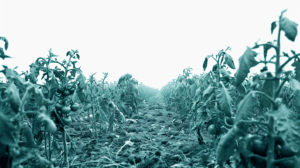How is the European Union combating greenwashing in the food and beverage industry and why is it important for companies to embrace these developments?
As consumers become more environmentally conscious, many food and beverage companies are eager to demonstrate their commitment to sustainability. In a joint study from McKinsey and NielsenIQ examining product sales growth for products claiming to be sustainable, it was found that products making ESG-related claims averaged 28% cumulative growth over the past 5-year period, vs. 20% for products that made no such claims. It also found that combining various ESG claims grew about twice as fast as products that made only one claim.
However, not all companies are fully transparent about their sustainability practices, which is known as greenwashing. This can lead to a loss of trust from consumers and undermine the efforts of companies that are genuinely committed to sustainability. In the McKinsey and NielsenIQ study, it is recommended that food and beverage enterprises ensure that ESG product claims reflect an overall meaningful sustainability strategy across multiple categories and products.
Fortunately, the European Union (EU) is taking action to combat greenwashing. The EU Commission has prepared a new green claims law, which will require companies to be more specific about their environmental claims and back up those claims with data. This law confirms that all sustainability labels will have to be based on a certification scheme or to be established by a public authority to validate credibility. This way companies are held accountable for their environmental claims and promote transparency and accountability in sustainability practices. Compared to the US, where the law is currently tied to general consumer protections making false claims, this is quite an improvement.
In addition, the European Parliament is taking on greenwashing and early obsolescence to empower consumers. This means that the Parliament is working to promote longer-lasting products and help consumers make more informed choices about the products they buy. By extending the lifespan of products and reducing waste, companies can reduce their environmental impact and improve their sustainability practices.
For food and beverage companies, it is important to take these developments seriously. Consumers are increasingly interested in sustainability, and they are looking for companies that are genuinely committed to environmental responsibility. By taking steps to reduce their environmental impact and be transparent about their sustainability practices, companies can build trust with consumers and differentiate themselves in a crowded market.
Sourcing ingredients from sustainable sources is a crucial step for food and beverage companies to reduce their environmental impact and build a more sustainable supply chain. To accomplish this, companies can work with suppliers that prioritize sustainable practices and have certifications like Fairtrade or Rainforest Alliance. They can also invest in programs that support small-scale farmers and promote sustainable agriculture practices. Additionally, companies can look for ingredients that have a lower environmental impact, such as those that are grown using regenerative agriculture techniques or those that are locally sourced to reduce transportation emissions. By taking these steps, food and beverage companies can not only reduce their environmental impact but also support the growth of sustainable agriculture practices and help build a more resilient food system.
are genuinely committed to sustainability should embrace these developments and take steps to reduce their environmental impact and communicate their efforts
clearly to consumers. By doing so, they can build trust, differentiate themselves in a crowded market, and contribute to a more sustainable future.








